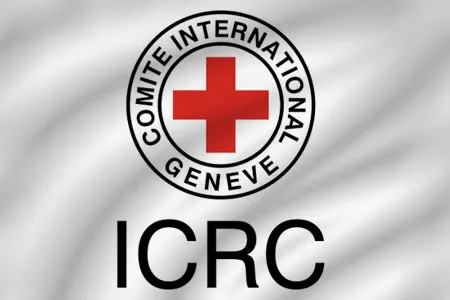News
Armed Conflicts, Climate Change Rising Malnutrition Rates in North East States, Says ICRC

|
Getting your Trinity Audio player ready...
|
Armed conflicts,Climate change rising malnutrition rates in North East states .Says ICRC
From Umar Dankano, Yola.
International Committee of the Red Cross, ICRC has expressed concerns over unabating malnutrition rates rise in the North East states and lake Chad region.
The Organization’s public relations official, Aliyu Dawobe made public the alarm via a press release projecting that, the malnutrition is caused by armed conflicts and climate change affecting food production in the lake Chad region.
According to the release, records of the
admissions of severely malnourished children in health facilities supported by the International Committee of the Red Cross (ICRC) in northeast Nigeria have increased by 24% between the third quarters of 2023 and 2024.
“The 24 % increase indicates both severe acute malnutrition (SAM) with and without medical complications treated in ICRC-supported facilities. That is from 6,824 cases in Q3 of 2023 to 8,470 cases in Q3 of 2024.
“The number of children under five suffering from severe acute malnutrition (SAM) with medical complications treated in ICRC-supported facilities has increased from 1,212 in the third quarter of 2023 to 1,691 in the third quarter of 2024, an increase of 39.5 per cent”.ICRC declared.
It explained further that, the increase is part of a trend affecting the entire Lake Chad Basin region, where an estimated 6.1 million people will not have enough to eat in the coming months due in part to both conflict and climate, the highest figure in four years.
That, the rise in the number of people without enough food mirrors an increase in violence, which has severely impacted communities’ ability to grow crops and access markets. Violent incidents in the Lake Chad region in the first half of 2024 rose 58% compared with the same period in 2023.
It observed that,Climate hazards are also preventing people from growing crops and accessing their farmland and markets,contributing to food security crisis being felt across Lake Chad in Cameroon, Chad, Niger and Nigeria where heavy floods at the beginning of harvest season washed away seeds for the dry lean season farming in the zone.
The ICRC reminds all parties to armed conflicts that it is their responsibility under international humanitarian law (IHL), to ensure that people living in the territories under their control can meet their essential needs, including food, water, medical care, and access to farmland and markets.
It (ICRC) engages all parties to armed conflicts on the respect for IHL, including in their conduct of hostilities. Indeed, IHL violations can negatively impact food security by disrupting access to fields and markets, restricting seasonal movement of livestock, and limiting access of humanitarian actors to communities in need.
ICRC’s Head of Delegation,Nigeria,Yann Bonzon added that, the consequences of spiraling violence and climate variability are devastating for families trying to feed themselves. “We see the proof in the health facilities we support, where the rising number of children with severe acute malnutrition is heartbreaking. Unfortunately, they only represent a fraction of those in need across the region,”








